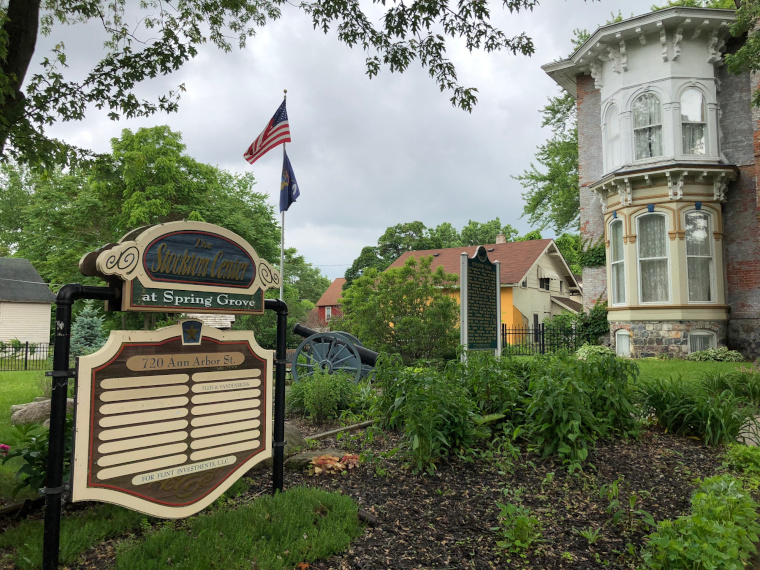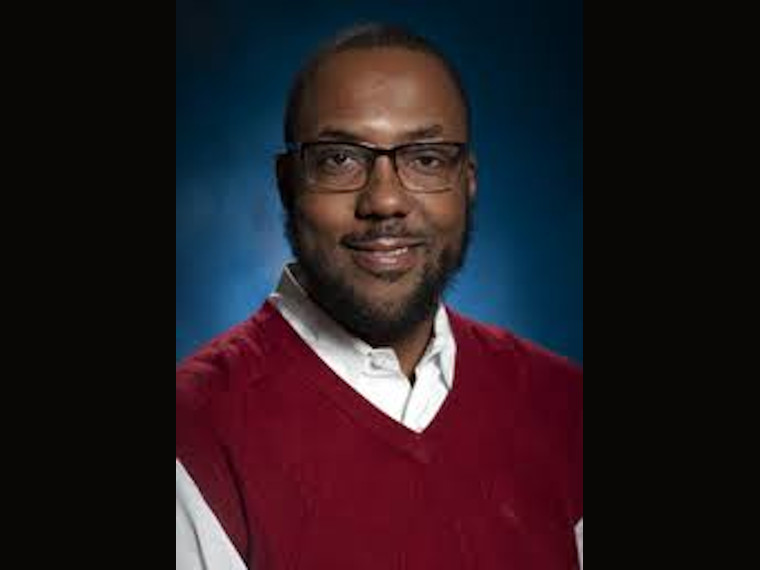Featured photo: Dr. Cleamon Moorer, Jr., president of American Advantage Home Care

Written by Tanya Terry
With many hospitals now at or near capacity, home health care can be like a warm blanket on a cold, winter afternoon. According to Michigan.gov, Hurley Hospital was at 97% capacity as of Dec 14 and McLaren Flint was at 92% at the time.
Home health care workers are part of essential workers and home health care workers were able to serve/treat patients even during the lock down. Outpatient (clinics) was closed but home care was always open.
“A few patients are still afraid of going to hospital or nursing home because of fear of getting COVID and a home health team and physical therapy is one of the options they would prefer,” said Paras Veera physical therapist for American Advantage Home Care Inc.
According to Veera, physical therapy is mostly hands on but due to COVID, some of the companies have permitted them to do tele-health or remote treatment as new adaptation, which is not effective in every situation. During the lock down a lot of elective surgeries were postponed. (For example, knee replacement surgery-and in that instance PT had played a major role to keep patient strong, relieving pain and helping them maintain their health.)
Centers for Medicaid and Medicare Services (CMS) has become more lenient with the designation or classification of homebound status, partly due to the stay at home order, of course, that was passed back in March, and then extensions of that Stay at Home Order helped to place more individuals in homebound status, according to Dr. Cleamon Moorer, Jr., president of American Advantage Home Care.
“With the pandemic and social distancing, a lot of doctor’s offices have reconfigured their waiting rooms and their waitlists have increased a bit,” Moorer said. “So, between telehealth visits, home visiting physicians and home health care agencies, the numbers of those turning to home health care has certainly increased in Flint and Genesee County, as well as surrounding areas.”
The amount of personal protective equipment (PPE) that clinicians wear has been increased. Now, they have face coverings, masks and gowns for patients and bootie covers for feet.
Sarah De Sonia, RN, at American Advantage Home Care has worked in a skilled rehabilitation center.
“Of course (with home health care) you reduce your exposure to the amount of people that you come in contact (with); you’re not in closed quarters in buildings with dozens if not hundreds of other people,” she said.
Home health care is typically less expensive and it can lead to better health outcomes as the patient feel more at ease in their own residences.
“The ecosystem of having a skilled clinician come into the home reduces some of the costs obviously of transportation, billing and scheduling in a traditional healthcare or clinic environment,” Moorer said. “Families seem to have a greater desire to be taken care of within the comfort of their own home. So, when you think of patients who suffer from dementia and Alzheimer’s, home creates a certain sense of familiarity that can’t be duplicated or simulated outside of the home-or it’s very difficult to do that. So, the overall cost of care delivery is decreased in a home health care environment. (And) I also want to add I think patients feel they have a greater sense of control of their day, of their schedule, of their life in general, knowing that ‘hey, I’m at home. It’s on my terms, and I’m not just a number in a waiting room or not just a number in the doctor’s office. But, I’ve got a skilled care team that comes out to my house two to three times a week to take care of me. So, I think the personalization of care is a value add for many families.’”
There are some health care providers that opt not to go into various neighborhood and communities.
“There’s been somewhat of an inequity of coverage, of real health care coverage, based upon zip codes in some instances,” Moorer said.
A lot of the telehealth or telemonitoring systems that are in homes allow patients’ blood levels, blood pressure and hearts to be monitored.
“A lot of these devices now are housed in homes where there’s remote monitoring, whether it’s through Phillip’s Lifeline or other third party agencies that come monitor and report to physician assistants (PAs), doctors and home health care agencies. So, we have seen an uptick in the technology in what insurance is willing to cover for patients.”
Moorer said they are seeing where some agencies are able to contract with Davita Dialysis. Davita offers in-home dialysis.
American Advantage Home Care has ventured off into private duty, which includes companionship and assistance with personal hygiene. Moorer said they are seeing a greater demand for this, and there are insurance plans that cover a certain amount of hours of having a companion or a caregiver to come into a home. For patients who have dual plans with both Medicare and Medicaid, the state will provide them with a case manager, who will look to coordinate with agencies to provide private duty to assist individuals at home.
One of American Advantage Home Care’s core values next to high quality is diversity. Moorer feels it is important to have diverse staff so patients see nurses and therapists that share not only their ethnic background, but personal as well as social interests.
“I think being intentional about being focused on urban areas and communities is an opportunity for many home health care agencies. We proudly serve inner city Detroit, Flint and Saginaw and surrounding areas and suburbs. I found some of our competitors cherry-pick the patients they would like to serve based upon demographics as well as geography. So there are some agencies that target a West Bloomfield Hills area versus going into Pontiac, Michigan or solely focus on serving Grand Blanc and veer away from serving Flint. It’s about being intentional and realizing the most important patient is the patient that’s right in front of you regardless of their demographic or their zip code.”
Virginia Dzuris, 49, is the daughter of Mary Crooks, who received services from American Advantage Home Care. Crooks originally went into the hospital with a perforated bowel. Crooks also has dementia.
“When she came home from the hospital she was pretty bad off,” Dzuris said. “She needed a lot of care because she was losing more mentally because of her dementia…She needed to be on a feeding tube. She needed all of her bowel care (and) her incision care. She only weighed 85 pounds when I first brought her home…She had thrush on her mouth. She certainly couldn’t eat food because her mouth was so sore. We had to maintain her blood pressure. All of her vital care they had to do. They kept track of and brought their people in for physical therapy. That was a great help! They helped in getting her wheelchair so I could get her to the doctor’s appointments because she couldn’t walk. She was just so teeny tiny. She just had no muscle strength at all. There was wound care of her incision and wound care where the feeding tube was as well. It was at least 12 weeks that she needed care.”
Crooks needed to be home because she was starting not to recognize people. According to her daughter, Crooks was losing it mentally in the hospital because she was not in her normal surrounding. Insurance covered all of Crooks’ service. She had Medicare and AARP helped cover a small portion of her care as well. Crooks said Moorer was organized and would talk and joke with Crooks on her bed. Once Crooks was almost going to faint and the staff at American Advantage Home Care detected the problem was her blood pressure medicine was too high, and they were able to help her.
“What Clem’s organization did for me is they really led the whole thing from start to finish,” Dzuris said. “They took charge. They said this is what you need, and they took over. It was so simple that I knew what I needed to do when I got her home; what I needed to do when I had her home. It was so simple that even though my head was scrambled and I was fearful and I was worried, I could follow this simple checklist.”
American Advantage Home Care has headquarters in Dearborn, and its Flint location is a dropsite for clinicians who draw lab work to route the lab work to Quest. The Flint location also serves as an administrative hub.


